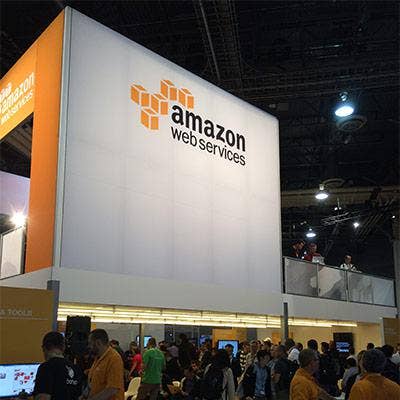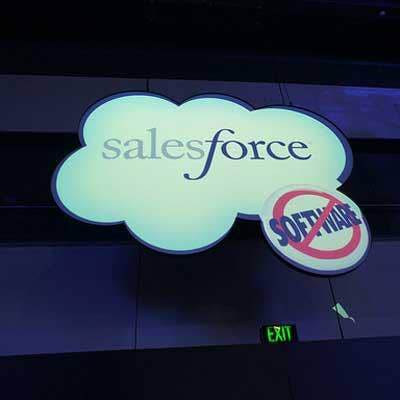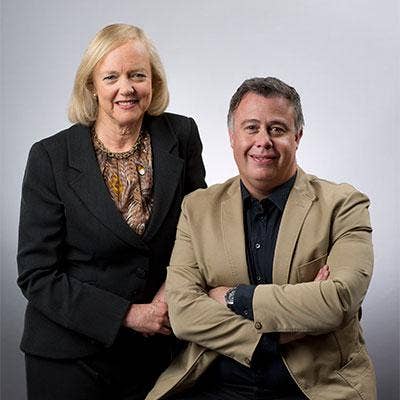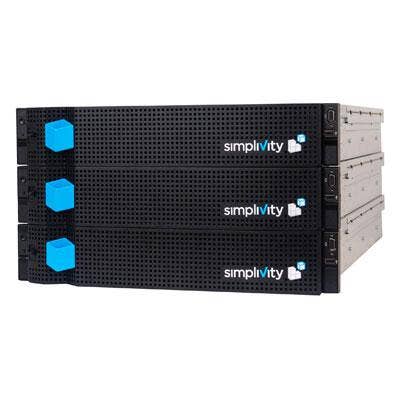5 Companies That Came To Win In 2015

The Year 2015
Every year there are winners and there are losers in the competitive IT industry. Which companies had the best strategies and made the right moves in 2015?
Some companies (Amazon Web Services, New Signature and Salesforce.com) top our list not just because of their ability to outpace everyone else, but also to set the groundwork for growth beyond this year.
Hewlett-Packard (and its HP Enterprise and HP Inc. spinoffs) win kudos for the gutsy decision to split the venerable company into more nimble (albeit still Fortune 50) companies. And we salute some of the hottest startups that caught the attention of competitors and the venture finance community.
Here are the companies that we think were playing to win in 2015.

Amazon Web Services – The Force Awakens
It's true that Amazon Web Services has been a rapidly growing and even dominant player in the cloud services arena in recent years. But in 2015 we found out just how big – and what a force – it has become.
Before this year Amazon didn't break out AWS' financial details. So in April the industry was stunned when the giant online retailer disclosed that AWS did $1.57 billion in business in the first quarter and generated $265 million in profits. By the third quarter sales had grown to $2.09 billion (for a $7.3 billion annual run rate) and profit margins up to 25 percent – despite eight price cuts since April 2014.
In 2015 AWS also aggressively expanded the range of services it offers, enhancing its cloud platform with more than 500 new features. The company launched an Internet-of-Things platform, the Firehose services for streaming data into an AWS data store, and the QuickSight tool for creating data visualizations and analytics without complex data modeling.

Salesforce.com Surpasses $5 Billion In Annual Sales, Sets Sights On $10 Billion
Also on a rapid sales-growth trajectory in 2015 was cloud application provider Salesforce.com.
The company started in February with the announcement that it had surpassed $5 billion in annual sales (for its fiscal 2015 ended Jan. 31), faster than any other software company. By the end of the third quarter the company was forecasting fiscal 2017 sales of $8 billion and CEO Marc Benioff had his eye on breaking the $10 billion barrier at record speed.
Salesforce was doing so well that Microsoft reportedly offered $55 billion to buy the company. And it's doing so well Salesforce turned the offer down.
Salesforce, meanwhile, kept innovating: In September it debuted the second generation of its Analytics Cloud service and said the company is developing an Internet-of-Things service for launch later in 2016.

HP Split Sets The Stage For Future Growth
Time will tell whether this year's move to split Silicon Valley icon Hewlett-Packard into two companies was the right one. But for now the company wins kudos for the gutsy move to create two Fortune 50 companies, one focused on enterprise systems and software and the other on PCs and printing solutions. The split was effective Nov. 1.
The company made other moves, both before and after the split, to strengthen its competitive position. In May the company completed its $3 billion acquisition of wireless networking high-flier Aruba Networks, for example. In August HP Enterprise demonstrated its commitment to the channel by shifting thousands of accounts to partners and promised not to pay its direct sales reps for SMD deals. And in December HPE debuted its Synergy "composable architecture" that CEO Meg Whitman described as the company's most important product announcement in a decade.
It wasn't all good for HP in 2015, though. The company wrestled with stagnant, and in some areas declining, sales throughout the year and in September announced employee cuts of as many as 30,000 jobs. In October HP also disclosed plans to shutter its unsuccessful Helion public cloud service.

New Signature Snags Funding, Makes Key Acquisitions
New Signature, a Washington D.C.-based solution provider that's been on the rise for several years, caught everyone's attention when Microsoft named it the vendor's No. 1 U.S. Partner of the Year in 2014.
While some companies might rest on their laurels after such an award, New Signature leveraged its status to grow and compete at an even higher level this year. The solution provider received $35 million in private equity in April and said it would use the funding to triple its business in two years.
To that end New Signature made several acquisitions, including CMS Consulting, a Microsoft professional services provider that expanded New Signature's expertise in Azure, Dynamics CRM and other Microsoft software. Acquisitions also expanded the company's geographic reach beyond its northeast U.S. base into Canada and the southeastern U.S.

SimpliVity Raises $175 Million In Financing, Takes Aim At Midmarket
There was a lot of venture financing flowing to hot startups this year. Few gained as much attention as SimpliVity, a rapidly growing startup in the converged infrastructure space that raised an eye-popping $175 in series D financing in March, pushing its valuation to more than $1 billion.
While SimpliVity gets the top-billing here, we're using the company to highlight a number of rising-star startups that attracted lots of notice – and money – this year.
Some were in the big data space (Palantir Technologies raised $450 million in July and Domo captured $200 million in April) while security startups were also hot (Tanium raised more than $211 million this year while Zscaler snagged $125 million and Crowdstrike raised $100 million in series C funding in April). Next-generation storage technology companies like Infinidat ($150 million in April) and Tintri ($125 million in August) also caught the VC folks' attention.
Take note: Some of these companies will be the major players of tomorrow's IT industry.